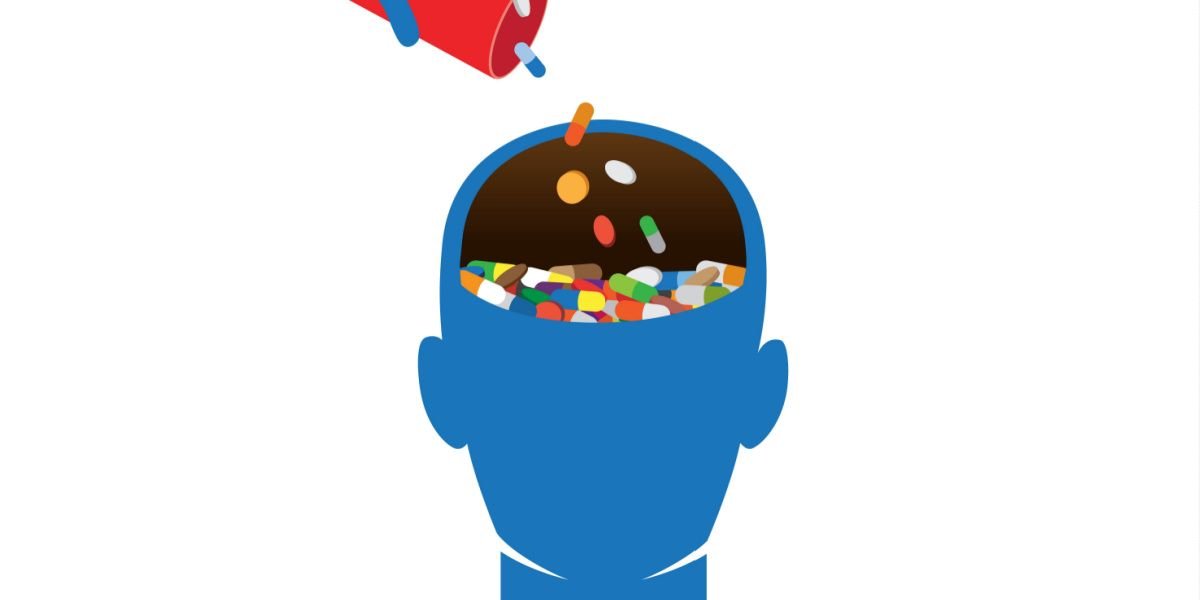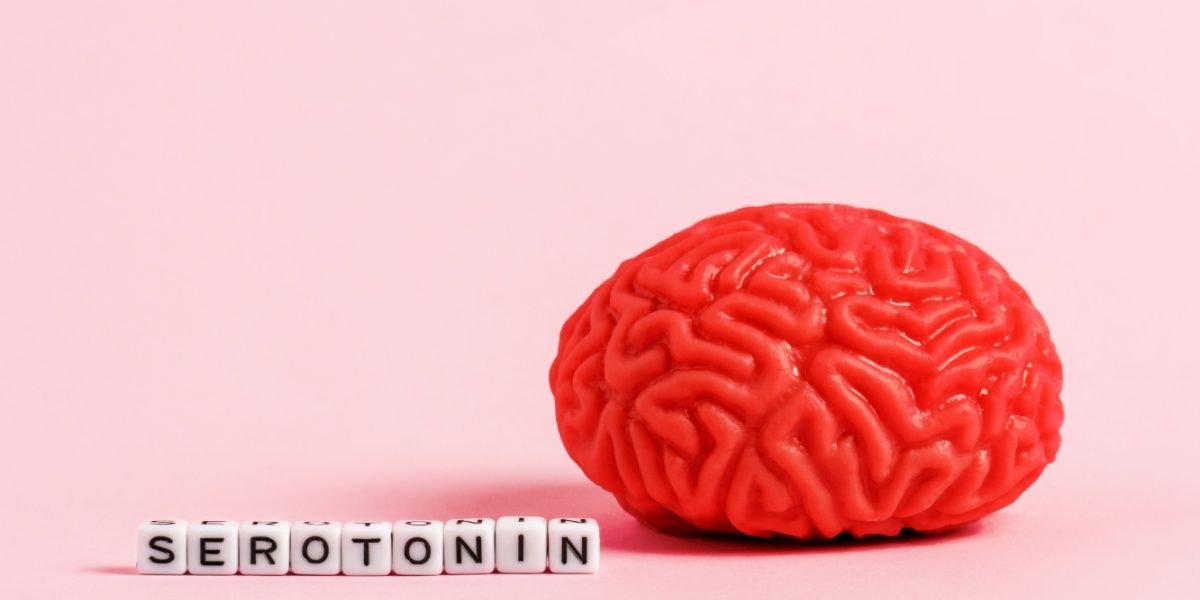Serotonin syndrome is a condition that can occur when there is a dangerous amount of serotonin in the system. This most often occurs when a person takes too much of a serotonin-altering substance such as antidepressants or illicit substances like ecstasy. Here we look at the effects of serotonin syndrome, what causes it, how dangerous it is, and how it is treated.
- Serotonin naturally occurs in the body, more specifically in the brain. It is required for certain nerve cells to function and is also responsible for regulating certain emotions such as happiness.
- Serotonin syndrome may occur in anyone who takes certain prescription drugs, over-the-counter medications, herbal supplements, and illegal drugs that affect serotonin levels.
- If you have started a new drug or have recently changed doses of an existing medication and suspect you may have serotonin syndrome, then you should speak with your medical provider straight away or go to the emergency room.
What is serotonin syndrome?
Serotonin syndrome is a potentially life-threatening medical condition that occurs when too much serotonin builds up in the body. The normal cause of excess serotonin being produced in the body is through an excess of serotonergic drugs such as certain medications or illicit drugs.[1]
Serotonin naturally occurs in the body, more specifically in the brain. It is required for certain nerve cells to function and is also responsible for regulating certain emotions such as happiness.[1] Too much serotonin in the body can overload the brain and may lead to a range of health complications from mild to severe. Mild serotonin syndrome symptoms include nausea, diarrhea, and shivering; severe symptoms include fever, muscular rigidity, and seizures. If left untreated, severe symptoms may lead to death, while mild symptoms may go away in a few days if treated appropriately.
Who gets serotonin syndrome?
Serotonin syndrome may occur in anyone who takes certain prescription drugs, over-the-counter medications, herbal supplements, and illegal drugs that affect serotonin levels. The risk of serotonin syndrome increases when;
- Increasing the dose of serotonin drugs
- Taking serotonin drug combinations (e.g. mixing antidepressants and migraine medication)
- Abusing serotonin drugs
Serotonin syndrome can occur in anyone of any age.
Symptoms of serotonin syndrome
Symptoms for serotonin syndrome vary from mild to severe and may at first feel like a small discomfort. If you are taking any medications that affect serotonin levels and experience any of the following symptoms (especially those that are moderate or severe) then it is important to seek medical aid.[1][2]
Mild symptoms
- Nervousness
- Nausea, vomiting
- Diarrhea
- Dilated pupils
- Tremor
Moderate symptoms
- Agitation, restlessness
- Muscle twitching, involuntary muscle contractions, muscle spasms, muscle rigidity
- Sweating, shivering
- Abnormal (side-to-side) eye movements
Severe symptoms
- Confusion
- Disorientation
- Delirium
- Fainting
- Rapid heart rate
- High blood pressure
- High body temperature (greater than 101.3° F)
- Hyperthermia
- Seizures
- Abnormal heartbeat
- Spontaneous clonus*
* Clonus is a rhythmic oscillating stretch reflex that is related to upper motor neuron lesions and is often accompanied by hyperreflexia.[4] A standard example of clonus might be the kick reflex when a doctor bangs the tendon in the knee during a medical exam. When spontaneous clonus occurs, it can result in a variety of reflexive abnormalities that are extremely uncomfortable such as ocular clonus.
When to see a doctor
If you have started a new drug or have recently changed doses of an existing medication and suspect you may have serotonin syndrome, then you should speak with your medical provider straight away or go to the emergency room. If you have severe symptoms or they worsen rapidly, seek emergency treatment immediately.[5]
There aren't any tests designed specifically to detect serotonin syndrome. A doctor will make a diagnosis based on a physical examination, a review of your medication history, and a review of your symptoms. It is important to be 100% clear and honest with your medical examiner about any use of serotonergic drugs that may not appear in your medical history.[5] This includes any additional use of prescription medications, over-the-counter medications, herbal products, and illegal drugs.[5]
How quickly do symptoms of serotonin syndrome develop?
Symptoms of serotonin syndrome can begin to show after just a few hours of taking a new medication or taking more of an existing serotonergic drug. While people who begin a course of serotonin drugs for the first time may experience some serotonin syndrome-like effects, these may not be the same. In either case, if you begin to display serotonin syndrome symptoms, then seek medical advice.[1]
Causes of serotonin syndrome
Serotonin syndrome occurs when there is too much serotonin in the body. Serotonin occurs naturally in the body, both in the brain and spinal cord to help regulate behavior, body temperature, and attention as well as in nerve cells throughout the body, especially in the intestines.[1]
When taking serotonergic drugs it is possible for serotonin syndrome to occur even if taking the medication as prescribed. However, it is far more likely to occur when taking more than one type of serotonin drug.
For example, mixing antidepressants such as Lexapro and Zoloft, or taking serotonin-affecting illegal drugs such as MDMA and fentanyl, can increase the risk of serotonin syndrome. It can also occur when combining two different classes of serotonin drugs such as opioid painkillers and migraine medication like Elavil or over-the-counter medications.
Drugs and supplements that may lead to serotonin syndrome include:[6]
Selective serotonin reuptake inhibitors (SSRIs) - escitalopram (Lexapro), sertraline (Zoloft), citalpram (Celexa), fluoxetine (Prozac), paroxetine (Paxil, Pexeva, Brisdelle)
Serotonin and norepinephrine reuptake inhibitors (SNRIs) - duloxetine (Cymbalta), milnacipran (Savella), levomilnacipran (Fetzima), and desvenlafaxine (Pristiq)
Tricyclic antidepressants (TCAs) - amitriptyline (Elavil), nortriptyline (Pamelor)
Monoamine oxidase inhibitors (MAOIs) - isocarboxazid (Marplan), phenelzine (Nardil), selegiline (Emsam), tranylcypromine (Parnate)
Bupropion - (Wellbutrin SR and XL, Zyban)
Anti-migraine medication - carbamazepine (Tegretol, Carbatrol, others), valproic acid and triptans, which include almotriptan, naratriptan (Amerge) and sumatriptan (Imitrex, Tosymra, others)
Lithium (Lithobid)
Opioid pain medications - codeine, fentanyl, hydrocodone, oxycodone, tramadol, Dilaudid, and Vicodin
Illicit drugs - LSD, MDMA (ecstasy/molly), cocaine, and amphetamines (meth)
Herbal supplements - St. John's wort, ginseng, and nutmeg
O-T-C medications - dextromethorphan cough syrup (Delsym)
Anti-nausea medications - granisetron (Sancuso, Sustol), metoclopramide (Reglan), droperidol (Inapsine), and ondansetron (Zofran)
Linezolid (Zyvox)
Ritonavir (Norvir)
Who is at risk of serotonin syndrome?
Anyone can develop serotonin syndrome, though some people that meet specific criteria are more likely to develop symptoms.[2]
You may be at increased risk of serotonin syndrome if:
- You have increased your dosage of a medication that affects serotonin levels
- You have started taking more than one medication that affects serotonin levels
- You abuse illicit drugs such as LSD, methamphetamines, or MDMA regularly
- You take herbal supplements that affect serotonin levels and other serotonin medications.
Long-term health complications of serotonin syndrome
Once the symptoms of serotonin syndrome have been treated, there shouldn't be any long-term health ramifications.
However, symptoms such as seizures and clonus can lead to irreversible complications and or chronic health conditions. This is why it is vital to contact a medical professional if symptoms present themselves.
Serotonin syndrome vs. Neuroleptic malignant syndrome (NMS)
Both serotonin syndrome and neuroleptic malignant syndrome (NMS) present similar symptoms such as hyperthermia, muscle rigidity, and mental status changes, and are both caused by ingesting medications and other substances that affect neurological pathways.[7]
NMS typically occurs when someone is taking antipsychotic or neuroleptic medication and serotonin syndrome occurs when serotonergic drugs are taken.[8] NMS also has some other symptoms that separate it from serotonin syndrome, such as an elevation in creatine kinase levels (an enzyme that helps produce muscle energy) and white blood cell count, as well as a low serum iron level essential for producing red blood cells.
In both cases, the most effective form of treatment is the cessation of any drugs that have caused the imbalance. NMS supportive care also incorporates the use of dantrolene which is normally used to help with spasticity, while serotonin syndrome is normally treated with serotonin blockers, such as cyproheptadine (Periactin®).[8]
How is serotonin syndrome treated?
Treatment for serotonin syndrome will depend on the severity of the symptoms as well as other conditions (such as any drug preexisting drug dependence or mental health issues).
When admitted to hospital for serotonin syndrome treatment, you may receive a variety of treatment options depending on the severity of the condition. Serotonin syndrome treatment may include:[1][2]
- Sedatives such as benzodiazepines to relieve muscle stiffness, agitation, and spasmodic symptoms
- Medication to regulate blood pressure and heart rate
- IV fluid for dehydration and fever
- An oxygen mask to improve blood oxygen levels
- A ventilation or breathing tube if the fever becomes too elevated (106° F)
- Serotonin blockers such as cyproheptadine
Treatment for mild symptoms
Mild symptoms of serotonin syndrome will often go away between 24 and 72 hours after cessation of medication. Serotonin blockers may be used if symptoms persist.
Treatment for moderate symptoms
Moderate symptoms may require hospital supervision for at least 24 hours with monitored treatment.
Treatment of severe symptoms
Severe symptoms of serotonin syndrome will require admission to an intensive care unit (ICU) so that organ and body functions can be closely observed.




-guide-detail.jpg?v=1728036834)